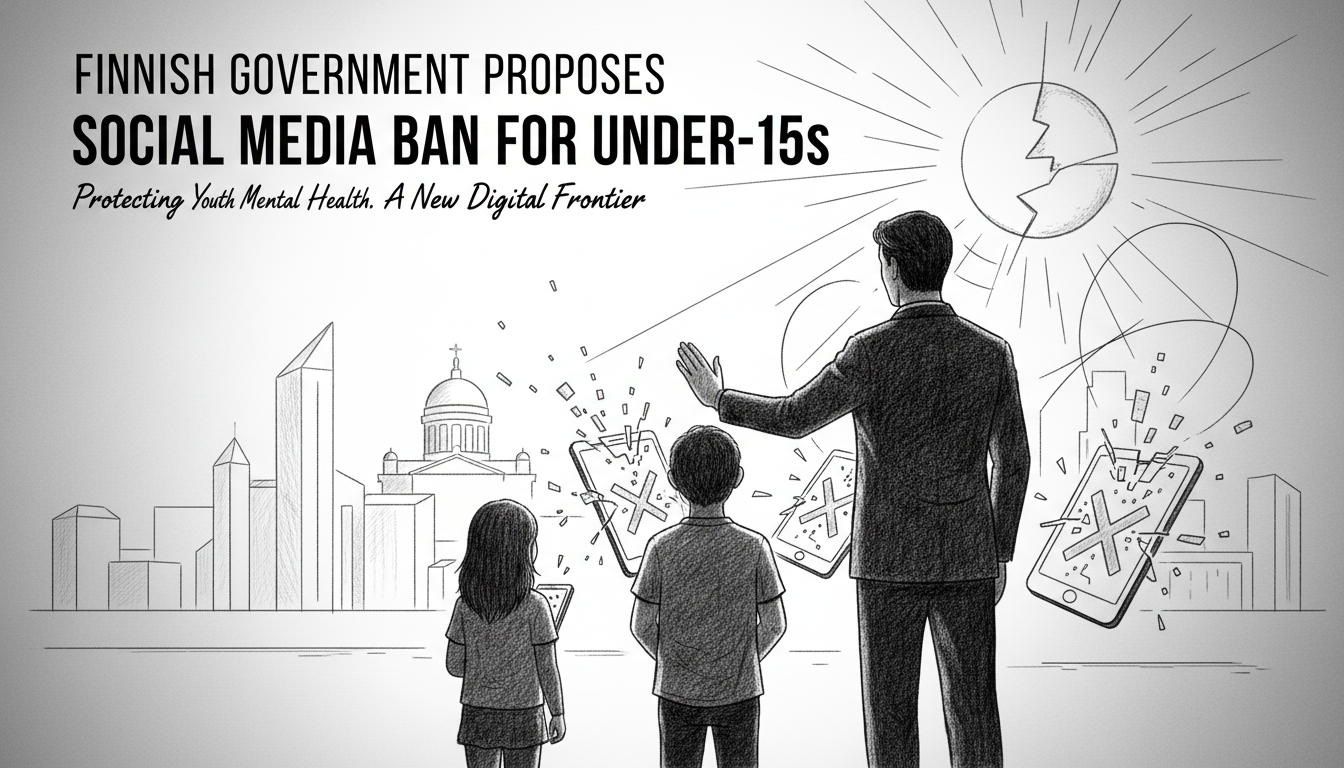Finland's government is moving to restrict social media access for children under 15. Prime Minister Petteri Orpo and Social Services Minister Sanni Grahn-Laasonen announced the proposal this week. They argue the measure will protect young people's mental health in the Finnish tech news landscape.
Green Party leaders Sofia Virta and Saara Hyrkkö have surprisingly backed the conservative-led initiative. Both politicians emphasized that child welfare transcends party politics. They called for comprehensive regulation of technology companies operating in Finland.
Hyrkkö stated in a release that research increasingly shows social media's real harms to children. She described the current situation as an unprecedented human experiment affecting youth daily. The legislation needs updating for the digital age, she argued. Children's rights must not fall behind technological development.
Virta stressed the importance of creating healthier digital environments alongside restrictions. She noted regulations must not discriminate against families or prevent youth from accessing support. Both politicians want better moderation requirements and stronger support for parents and schools.
The Finnish gaming industry and broader technology sector will likely face new compliance requirements. Companies like Supercell and Rovio might need to adjust their youth engagement strategies. Nokia's latest news often focuses on network security, but content moderation could become equally important.
Prime Minister Orpo has launched a working group to study implementation details. The investigation will cover monitoring, definitions, and possible exceptions. Helsinki startups and Espoo innovation hubs should prepare for potential regulatory changes.
Finland's approach reflects growing global concern about social media's impact on youth. The country's technology sector has traditionally emphasized innovation and freedom. This proposed balance between protection and digital rights represents a significant shift.
Finnish parents and educators have expressed mixed reactions to the proposal. Some welcome additional safeguards for children online. Others worry about practical enforcement and potential overreach. The debate continues as the government prepares its formal legislation.
The initiative could influence other Nordic countries considering similar measures. Sweden and Norway have both debated youth social media restrictions recently. Finland's cross-party support makes this proposal particularly noteworthy in regional politics.
Technology companies operating in Finland should monitor these developments closely. The Finnish technology sector employs approximately 70,000 people nationwide. Any new regulations could impact how these companies design and market their services to young users.

